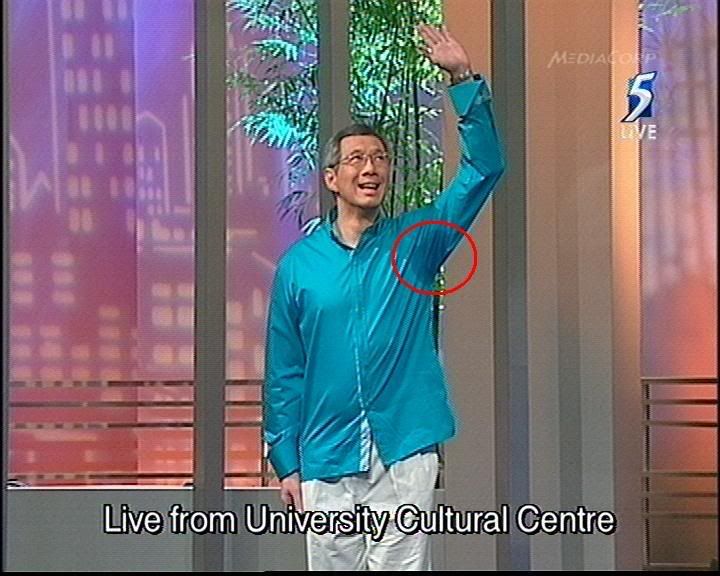- Joined
- Jul 24, 2008
- Messages
- 33,627
- Points
- 0
<TABLE cellSpacing=0 cellPadding=0 width="100%" border=0><TBODY><TR>Fake singer and fireworks at Olympics? It's art
</TR><!-- headline one : end --><!-- show image if available --></TBODY></TABLE>
<!-- START OF : div id="storytext"--><!-- more than 4 paragraphs -->I HAD the chance to watch the opening ceremony of the 29th Olympic Games live on television while attending a function in Kuala Lumpur. Despite the official nature of the function, the host set up two huge TV screens to allow guests to witness and enjoy one of the best shows on earth - even the official speech was delayed for an hour.
Afterwards, everyone sung praises of how great a show China had put on and the country's coming of age of China. For a while, critics were as dead as a dodo. However, in the next few days, China was criticised for showcasing a fake singer as well as fake fireworks.
Why can't the world be a little less hung up? It was, after all, a show. Nine-year-old Lin Miaoke is a good actress, while Yang Peiyi is a good singer snugly put into play by veteran and award-winning film director Zhang Yimou.
China has called on its most creative talent to produce a show that reflects the country's coming of age. as in all shows, the visual is as important as the act itself. Why do we conclude that the intention to have a young girl mime was a lie? Why can't we accept that there is no element of deception but one of epic entertainment value - using the best candidates to produce the best, if not perfect, outcome?
The fireworks too were a work of art in motion. Just because no one had done it before does not mean it was an attempt to cheat. The creator had cranked up all his creative juices to produce art in motion, combining imagination and real art.
If artists had acted within the parameters set by society, great names like Michaelangelo and Leonardo Da Vinci would never have been recognised and Hollywood would have been stillborn.
By all means, have your say and criticise but don't conclude that the intention was to deceive. After all, aren't all shows meant to have the highest entertainment values? Philip Kwek
</TR><!-- headline one : end --><!-- show image if available --></TBODY></TABLE>
<!-- START OF : div id="storytext"--><!-- more than 4 paragraphs -->I HAD the chance to watch the opening ceremony of the 29th Olympic Games live on television while attending a function in Kuala Lumpur. Despite the official nature of the function, the host set up two huge TV screens to allow guests to witness and enjoy one of the best shows on earth - even the official speech was delayed for an hour.
Afterwards, everyone sung praises of how great a show China had put on and the country's coming of age of China. For a while, critics were as dead as a dodo. However, in the next few days, China was criticised for showcasing a fake singer as well as fake fireworks.
Why can't the world be a little less hung up? It was, after all, a show. Nine-year-old Lin Miaoke is a good actress, while Yang Peiyi is a good singer snugly put into play by veteran and award-winning film director Zhang Yimou.
China has called on its most creative talent to produce a show that reflects the country's coming of age. as in all shows, the visual is as important as the act itself. Why do we conclude that the intention to have a young girl mime was a lie? Why can't we accept that there is no element of deception but one of epic entertainment value - using the best candidates to produce the best, if not perfect, outcome?
The fireworks too were a work of art in motion. Just because no one had done it before does not mean it was an attempt to cheat. The creator had cranked up all his creative juices to produce art in motion, combining imagination and real art.
If artists had acted within the parameters set by society, great names like Michaelangelo and Leonardo Da Vinci would never have been recognised and Hollywood would have been stillborn.
By all means, have your say and criticise but don't conclude that the intention was to deceive. After all, aren't all shows meant to have the highest entertainment values? Philip Kwek



